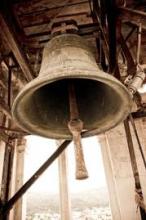User login
Another academic year is upon us and so, too, is an attempt to reconfigure how we train our interns and residents.
The decline in medical education began with the Bell Commission and the first law passed by New York State in 1989 designed to limit residents’ hours. Since then the rules have become more draconian, and internship as we knew it is no more. A lot can be said about the consequences, but I’ll just mention one that impacts cardiology: It’s the lack of exposure to clinical medicine, a galling end-product of regulations that were created to correct a perceived wrong without the benefit of a foundation of critical data.
That 3:00 a.m. STEMI call is more likely than ever to be witnessed by a "night float" than a resident on a cardiology rotation. When morning comes, the course of events has become at most a 15-second summation given to the incoming resident; it is no longer a meaningful "at the bedside" exchange. Without such experiences, the complications of a myocardial infarction are now merely items to be memorized from a textbook, ECG interpretation is becoming a lost art, and any complaint of "chest pain" on the internal medicine service leads to a call for a cardiology consultation.
At least cardiology fellowship remains in demand, and the fellows seem to be engaged. Indeed, their enthusiasm and interest provide much needed reassurance; after all, we are training the physicians who will be our physicians or our children’s physicians in the future.
Another academic year is upon us and so, too, is an attempt to reconfigure how we train our interns and residents.
The decline in medical education began with the Bell Commission and the first law passed by New York State in 1989 designed to limit residents’ hours. Since then the rules have become more draconian, and internship as we knew it is no more. A lot can be said about the consequences, but I’ll just mention one that impacts cardiology: It’s the lack of exposure to clinical medicine, a galling end-product of regulations that were created to correct a perceived wrong without the benefit of a foundation of critical data.
That 3:00 a.m. STEMI call is more likely than ever to be witnessed by a "night float" than a resident on a cardiology rotation. When morning comes, the course of events has become at most a 15-second summation given to the incoming resident; it is no longer a meaningful "at the bedside" exchange. Without such experiences, the complications of a myocardial infarction are now merely items to be memorized from a textbook, ECG interpretation is becoming a lost art, and any complaint of "chest pain" on the internal medicine service leads to a call for a cardiology consultation.
At least cardiology fellowship remains in demand, and the fellows seem to be engaged. Indeed, their enthusiasm and interest provide much needed reassurance; after all, we are training the physicians who will be our physicians or our children’s physicians in the future.
Another academic year is upon us and so, too, is an attempt to reconfigure how we train our interns and residents.
The decline in medical education began with the Bell Commission and the first law passed by New York State in 1989 designed to limit residents’ hours. Since then the rules have become more draconian, and internship as we knew it is no more. A lot can be said about the consequences, but I’ll just mention one that impacts cardiology: It’s the lack of exposure to clinical medicine, a galling end-product of regulations that were created to correct a perceived wrong without the benefit of a foundation of critical data.
That 3:00 a.m. STEMI call is more likely than ever to be witnessed by a "night float" than a resident on a cardiology rotation. When morning comes, the course of events has become at most a 15-second summation given to the incoming resident; it is no longer a meaningful "at the bedside" exchange. Without such experiences, the complications of a myocardial infarction are now merely items to be memorized from a textbook, ECG interpretation is becoming a lost art, and any complaint of "chest pain" on the internal medicine service leads to a call for a cardiology consultation.
At least cardiology fellowship remains in demand, and the fellows seem to be engaged. Indeed, their enthusiasm and interest provide much needed reassurance; after all, we are training the physicians who will be our physicians or our children’s physicians in the future.
